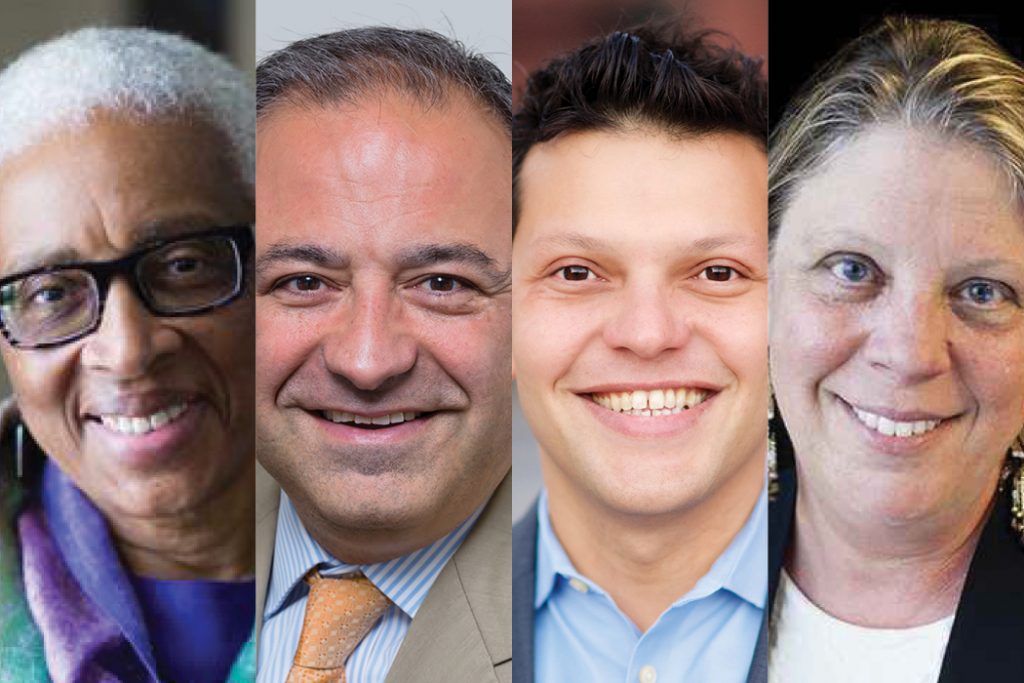The Rappaport Center for Law and Public Policy began its fall webinar series September 3 with a panel discussion on a topic currently in the forefront of American public discourse: racial justice and, specifically, the relationship between civil rights and criminal justice.
After a welcome by BC Law Dean Vincent Rougeau, the discussion was moderated by Visiting Professor Geraldine Hines, the first African-American woman appointed to the Massachusetts Supreme Judicial Court and a founder of the first women-of-color law firm in New England. She started the conversation with a sobering statement: “Targeting black people is as old as the country itself.”
The panelists quickly seized on her observation and went on to explore how inherently complex and multidimensional the impact of systemic racism is on the justice system and civil rights.
Iván Espinoza-Madrigal, executive director of Lawyers for Civil Rights (LCR), argued for a combination of strategies to address the problem. “There’s no silver bullet,” he said.
He also explained that one of the main constraints to progress is the disconnect between people who don’t experience these problems on a day-to-day basis and those who do. “There is an issue with the understanding of what racism is about. It’s not about being non-racist individually, it’s about being anti-racist collectively,” he said.
Anthony Benedetti, chief counsel for the Committee for Public Counsel Services (CPCS), agreed and added that imperfections in the justice system are another obstacle to formulating solutions. “The law is a tool, but it is an imperfect tool. It’s not the answer to everything. Like we’ve said, you need to bring much more than litigation” to the struggle for justice, he noted. “To address some of these systemic problems you need data. In Massachusetts, data is not collected in any way that you would call perfect. It’s hard to get, some of it is not public, so systemic litigation can be very challenging.”
Benedetti’s advice to counter these challenges was grassroots advocacy and improved education of the media on the realities of these issues, as well adjustments to the language used when referring to police and police activity. “Language matters, in the courts, as well as in all of the different agencies in the legal system,” he said. “The words that we use tend to dehumanize the people who are caught up in the system, whether it’s referring to someone who’s locked up as an inmate or referring to someone as a defendant,” he offered by way of example.
Other initiatives brought up among the panelists included improved diversification of the police force, an effective certification system and implementation of a decertification system, doing away with qualified immunity, and professionalizing training in areas that are currently overlooked.
“There really isn’t any type of de-escalation training, use of force training, or unconscious bias training that is required among police departments, Espinoza-Madrigal observed. “It really is a patchwork. It’s not interactive and it’s not dynamic. Almost like a checkmark instead of a meaningful aspect of the training as an officer.”
Carol Rose, executive director of the American Civil Liberties Union (ACLU) of Massachusetts, concurred. In order to avoid instances like the murder of George Floyd, she said, “We need a certification system that has more teeth.” She used Derek Chauvin, the white Minneapolis police officer who kept his knee on the neck of Floyd, a black man, until he perished, as an example of the problem. Before the incident, Chauvin had 17 citations against him and still hadn’t lost his job, Rose noted. “We are in favor of a certification system. If you need it to run a nail salon, you should need it to carry a gun and a badge.”
Ultimately, the panelists expressed hope for significant change but agreed that there is no overnight solution to this problem. They believe it will take a combination of efforts and strategies, starting with conversations at the dinner table and reaching into the courtrooms and legislatures.
“Hope is an act of courage. If we didn’t have hope, we would have stopped doing this a long time ago” Benedetti said.
Pictured at top, from left, Geraldine Hines, Anthony Benedetti, Iván Espinoza-Madrigal, and Carol Rose


